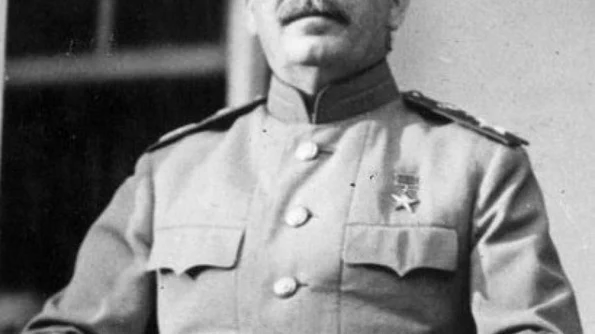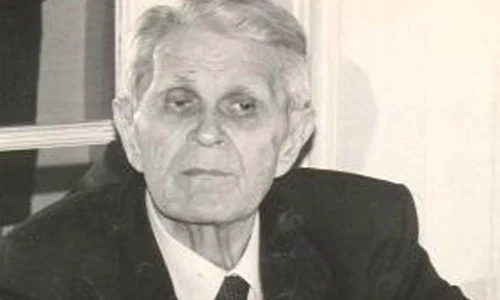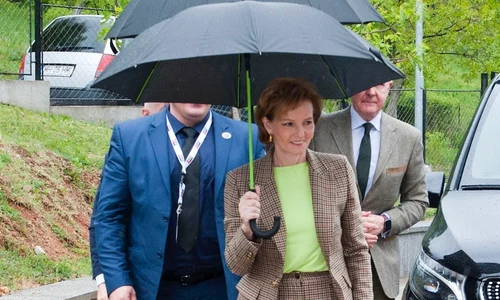
Stalin unmasked: The Khrushchev report (1956)
February 25th, 1956. Soviet leader Nikita Khrushchev surprises delegates present at the 20thCongress of the Communist Party of the Soviet Union with a speech entitled On the cult of personality and its consequences.Presented in a closed session of the Congress, this speech would become famous worldwide in only a few days and it would end up as the starting point of the USSR’s destalinization and of the changes that shook down the entire socialist block.
The objective of the present report is not a thorough evaluation of Stalin’s life and activity. Concerning Stalin’s merits, an entirely sufficient number of books, pamphlets and studies had already been written in his lifetime. Stalin’s role of Stalin in the preparation and execution of the Socialist Revolution, in the Civil War, and in the fight for the construction of socialism in our country, is universally known. Everyone knows it well. At present, we are concerned with a question which has immense importance for the Party now and for the future – with how the cult of the person of Stalin has been gradually growing, the cult which became at a certain specific stage the source of a whole series of exceedingly serious and grave perversions of Party principles, of Party democracy, of revolutionary legality.
The CPSU’s 20thCongress began on February 14th, 1956 and it was the first one held after Stalin’s death in 1953. Despite the death of the person who had ruled the Soviet Union for over two decades, Stalin’s name wasn’t at all mentioned during the Congress’s meetings before February 25th, and then it was only spoken of in a session closed to outside participants (foreign journalists and members of the other communist parties around the world).
Through his famous report, Khrushchev denounced Stalin’s personality cult and his crimes, including the execution, torture and imprisonment of party members under false accusations. Moreover, Khrushchev criticized Stalin’s foreign policy decisions, blamed him for the soviet agriculture’s failure, for organizing mass terror and for all the mistakes that had led to the death of millions of soviet citizens during the war and German occupation.
The delegates present at the meeting listened to Khrushchev’s speech for hours, silently and amazed. Unlike regular Congress speeches, this one would not be received with rounds of applause, as the communist delegates left the meeting room in shock. Alexander Iakovlev, who became, in the 1980s, one of the architects of perestroika, would later tell how the speech shook him;he felt that Khrushchev was telling the truth, but it was a frightening truth. Entire generations of young communists had been raised to worship Stalin, and suddenly everything had been destroyed and they were told it had been a lie.
Khrushchev’s report was based on the results of the Pospelov commission. This special party commission had been established in January 1955, at a session of the Presidium of the Party central committee, and its purpose was to investigate the repression against the communist delegates who had attended the 1934 17thCongress. The commission concluded that in 1937-1938, the most violent years of the Great Terror, more than 1, 5 million people had been arrested for ‘anti-Soviet activities’, with more than 680.000 executed.
Khrushchev’s gesture, of such a radical sentence against the Stalinist age, was quite dangerous. Solzhenitsyn wrote that, in his opinion, Khrushchev’s speech was a truly honest one, driven by the desire to do good. Others believed that it was nothing more than an attempt to consolidate his own political position, by eliminating possible enemies labeled as ‘Stalinists’. It is also important to note that, by blaming Stalin for all the crimes and wrongdoings in the Soviet Union, the party itself appeared as being innocent.
Despite the fact that the speech should have been kept a secret, at least for a while, the western press quickly found out about it (its full text would be published in The New York Times, on June 5th). Only a month later, the CPSU’s Central Committee distributed the text to all party organizations across the Soviet Union.
Inside the Soviet Union, the destalinization process would, in time, lead to a greater liberty for the citizens. Outside the country, Khrushchev’s words became the base for the downfall of several communist leaders, as well as several reform attempts. The best known – and, in the same time, the most surprising – direct consequence of the Khrushchev report was the Hungarian Revolution of 1956, which showed that the Soviet Union wasn’t actually ready to give up on all Stalinist habits.
At the next CPSU Congress, held in 1961, Khrushchev attacked again Stalin’s memory, but this time in an open session, and other party members were allowed to do the same. In the meantime, Stalin’s remains had been removed from the Red Square Mausoleum, where they had rested alongside Lenin’s remains, and the cities named in his honor, starting with Stalingrad, received new names.















